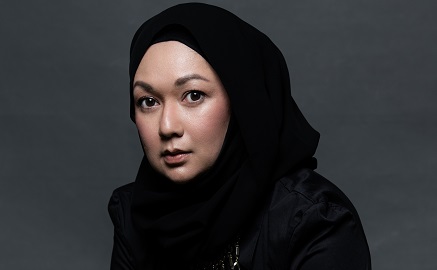Kuala-Lumpur based Shasha Ahmad has worked in the fashion retail industry for 18 years. While half of her career was spent as a fashion buyer and manager for a luxury brand, the other has seen her rise in the e-tailing business.
She joined Zalora in 2012 to help build the modest wear category. Nine years on, she heads the modest wear category for the company. The mother of two leads a team, consisting largely of women. She talks to Women Icons Network about how Zalora is empowering women through fashion, the changes required to make the modern workplace more inclusive, and how men can help the cause.
Empowering Women and Girls
While she has not encountered any biases since joining the workforce, Shasha has definitely heard of companies preferring to hire men to avoid providing any potential long maternity leaves and child care to female employees. “Naturally, I was appalled by this statement, because I believe that hiring decisions should always be made based on an individual’s qualifications, and never on gender,” she says.
She should know how it’s done. After all, 90% of her team members are women of different races and backgrounds. She ensures to extend this empowerment that her employees get, to their customers as well. Though the team works on building modest fashion brand names, they consistently work towards celebrating women through curated designs that exude power and strength through the silhouettes and trimmings.
They also have special collections in their in-house brand Zalora Young to celebrate International Girls Day (IGD) in October – a movement that aims to empower girls to overcome barriers posed by stereotypes and exclusion. “As a company, we are very much aligned with the movement’s beliefs – that empowered girls of today will be tomorrow’s workers, mothers, entrepreneurs, mentors, and political leaders. We will continue ramping up our efforts to support the cause, and contribute to a more gender equal society for all,” states Shasha.
Gender and Workplace
The first step towards improving the state of gender equality at workplaces is to normalise the ascent of qualified women to leadership roles, she believes. Women, she adds, have equal rights to be leaders, and this needs to be said out loud repeatedly until it becomes the norm.
“Often, women in leadership face different challenges than their male counterparts – from being measured by a different yardstick, to having to deal with preconceived biases that can lead to a narrowed view of their potential and accomplishments. As such, there is a pressing need to enforce transparent evaluation and remuneration comparison between genders,” Shasha feels. She adds that it is also important for company heads to ensure that their workforce is diverse, equal and inclusive.
Policies that could work, according to her, turning the concept of an inclusive workplace into a reality include flexible work arrangements for the employees who need it. She believes this would help employees better balance and navigate between their personal and professional responsibilities, and in turn, foster a work environment that is inclusive for all.
Role of Male Allies
In order to achieve gender balance in the corporate world, men who are already in leadership positions have a huge role to play, thinks Shasha. They should make an effort to identify and mentor female colleagues who have the potential to progress further in their careers for starters, she says giving an example.
“I also think that more compassion and respect should be given to female employees, especially as they often have to juggle between their personal and professional responsibilities,” she says. If provided a safe, diverse and inclusive working environment, all employees would have equal opportunities to grow, learn and excel in their roles, she explains.


